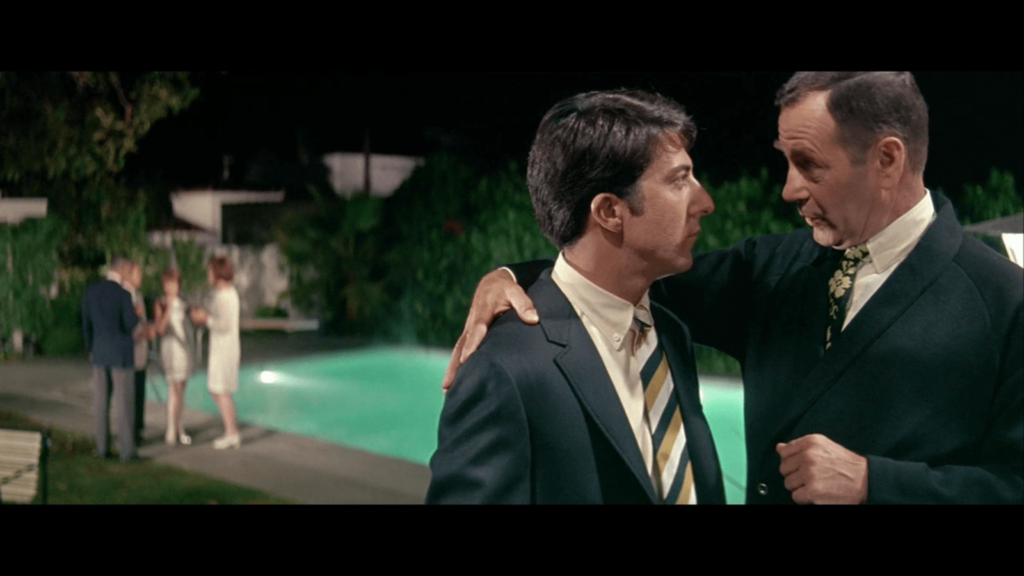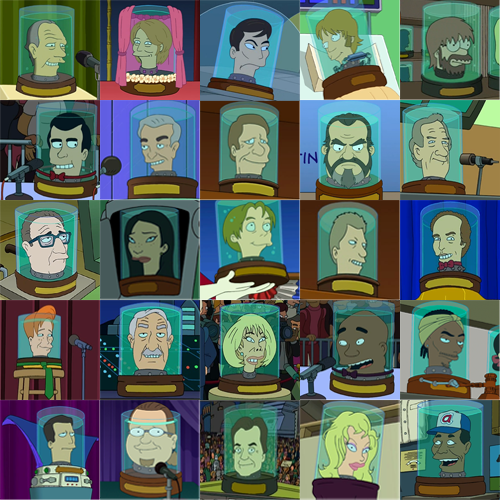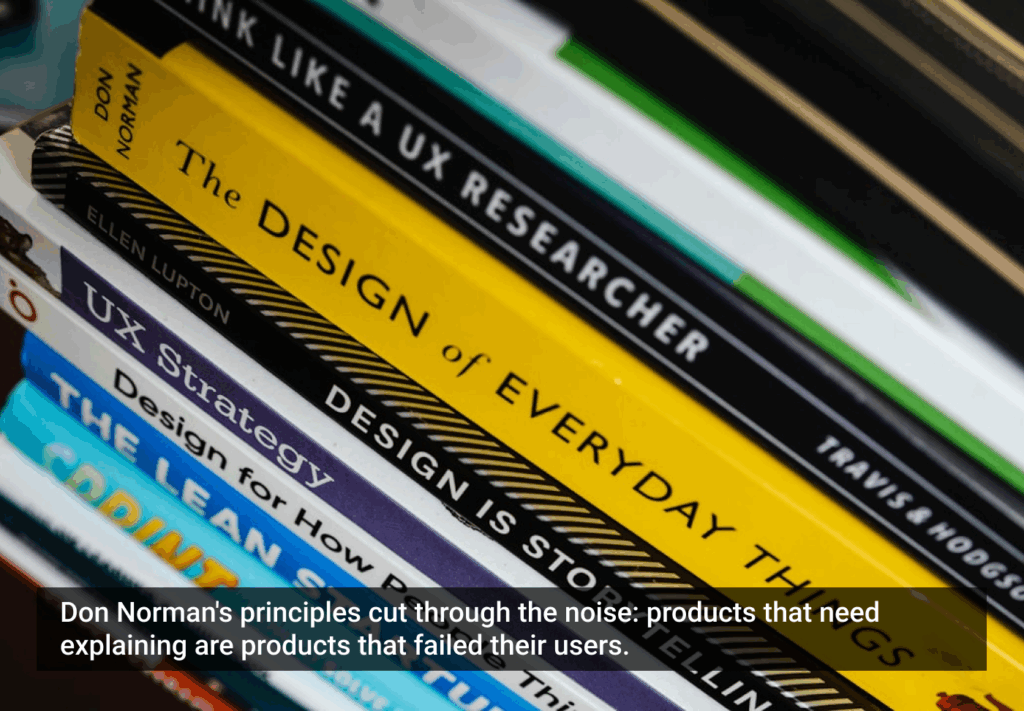UX Futures is a one-day virtual conference that will take place November 5. Hosted by Rosenfeld Media and Environments for Humans, the event features six inspiring speakers—Steve Krug, Jesse James Garrett, Margot Bloomstein, Andy Polaine, Nathan Shedroff and Abby Covert—all focusing on what’s next for user experience.
To give you a taste of what to expect, we’ve asked three of them—Nathan, Abby, and Steve—to answer a few questions about the future of UX. We hope you’ll join us November 5. Be sure to use discount code UXMAGAZINE for 20% off when registering.

It’s 2024. You’ve just finished your UX education, and you’re at the graduation party your parents have thrown for you. An old friend of theirs tells you that he has one word for you as you consider your future. What is it? (It’s not “plastics.”) And why?
Nathan: It could be plastics—just bioplastics! Seriously, I don’t think that anything about experiences, or the offerings that create them, can be boiled down so much. There are just too many pieces that are important, appropriate to consider, and variable. That said, if I had to choose a word, I’d choose the phrase “state of mind.” This is a better target to focus on when developing any kind of experience, in any media or context. A change in state of mind is what experiences are actually for. It’s what we hope happens to people in the experience.
State of mind is how we feel, react, and experience at any moment, and it’s based on five elements: memories, emotions, perceptual bias, behavioral response, and mental models. These are the parts of our psychology that govern how we react and what we value about an experience. In a very real sense, it’s what we as developers (designers and engineers alike) are trying to affect. All of our design choices affect these five elements because they’re the ones that shape our state of minds. As we learn more about our internal psychologies and cognition, it opens up more understanding about what and why we’re designing in the first place.
Abby: “Agreement.” I don’t think that the soft skills involved in being a designer will be getting any less important in the next ten years. In fact, I think the world is about to double down on rethinking everything about how we collaborate with one another. Gaining agreement in 2024 might not involve getting in a physical place with people anymore, but it will still involve negotiating the fragile state of human relationships and politics to gain agreement on what we are all going to do. The most successful people I know are really good at getting people to agree on whatever it is they need to do in order to create momentum. So I hope that in 2024, recent UX graduates (if there will be such a thing) are being constantly reminded that individual brilliance doesn’t really mean shit in this particular line of work.
The world is about to double down on rethinking everything about how we collaborate with one another
Nathan: I’m going to offer another word: “generative.” What’s Abby’s talking about has corollaries in other areas, too. There is a huge need to create systems that create more systems; solutions that generate more, original solutions rather than reduce conversation, agreement, cooperation, etc. For example, generative communication techniques are some of the most powerful tools I’ve ever learned. It points to a new approach to leadership and collaboration. Imagine new solutions that enable progress throughout the systems they’re connected to instead of only for specific touchpoints our clients might focus on.
Steve Krug: Maybe “hyperstatistics.” The one thing we can be sure all the incredible number crunching ability we’ll have by then will be applied to is statistics. Or maybe there’ll be a word for the practice of keeping things that are inherently creepy (like observing our every move online) from seeming creepy.
It’s 2029. Which design materials will UX folks be working with the most: macro (i.e., organizations, institutions, and ecosystems) or micro (organisms, cells, and thoughts)?
Nathan: This isn’t an either/or answer—it can’t be. UX must work across this spectrum in order to be successful. It’s like asking “will engineering be about systems, shipping, and APIs, or will it be about transistors, code, and I/O?”
As professionals trying to solve both ever-bigger systemic and ever more personal challenges, we need to be delving more deeply into the elements at all levels. Partly, we need to work at the larger, system levels to both be more strategic and appropriate and be better prepared to partner with our peers in order to, collaboratively, make more successful solutions. In addition, we need to understand people more deeply and more empathically in order to both compete and deliver what people really want and need (regardless of whether they see it themselves yet).
I’m sure there will be some applications (like medicine) that might require us to design with cells, DNA, or other organisms but, for designers and those crafting the front-end experience, we’ll be working more considerately with people’s thoughts (their “state of mind,” described above) than with biology.
Abby: I think we will likely be starting to understand that Post-Its and Sharpie fumes are killing the polar bears or something, so I expect remote node-based collaboration tools to replace that model of working fairly soon. We are already seeing that happen.
By 2029, I would think that many of us will be more familiar with tools that allow us to create complex visualizations out of large quantities of data. I will go on record here and say that if in 15 years I am still wrestling with pivot tables and hand vectorizing charts and graphs, that I should move on to basket weaving or something more productive.
I also hope that we are taking ourselves and our work a little more seriously at that point, which would mean more people at the interface level, but also more people at the organizational and ecosystem level. Whatever happens, I hope that the judgement of seeing one as better or more challenging than the other has stopped. I hope that in 15 years we agree that this is hard work, and it is turtles all the way down.

Image of stacked turtles courtesy Shutterstock.
It’s 2034. You’re looking back on the last twenty years of UX—both missed opportunities and major wins. What stands out the most? Do you feel regret?
Steve Krug: I’m either sitting around with the angels trying to guess what Apple’s Next Big Thing is going to be, or looking at Ray Kurzweil’s head in the jar next to mine, wishing I could move to another shelf. (He’s nice enough, but he can’t seem to stop talking about the same things over and over.)

I regret most that, because everyone’s still waiting for neural implants to happen, they’ve never gotten around to making voice input really work (e.g., creating microphone technology that sits discretely on your neck and picks up sub-vocalization so you can converse with your devices without annoying people—and without looking and feeling like a [literally] babbling idiot). It shouldn’t surprise me, though when, back in 2014, even though PCs had been around for 30 years we still had to wave a chicken over our heads just to get the right microphone recognized or set a sound level. And feedback! You would have thought that eliminating echoes on conference calls would have been something of a priority by then, but noooooo.
On the other hand, the movement that started in the late 2020s to stop building software that almost did something complicated and focusing instead on doing things that could actually be done well and reliably continues to feel like a big win. It also makes it much easier to find the good stuff, because people have given up trying to sell over ambitious devices and software that don’t really work, or also-ran clones of the ones that do work.
Also in the “major wins” category is that no one has used the phrase “Internet of Things” for at least twenty years.
Nathan: The biggest missed opportunity came in the first 15 years leading up to 2030! Big Data this and Big Data that was important but a distraction that put the focus on engineering (the easy stuff) while the rest of the more important issues eked along with little development (in comparison). We’re living on top of each other and there’s a huge faction of fearful people (thanks FOX News) that are so freaked out at the future that they spend most of the time trying to get back to 1990 (or, to be honest, 1950). The world is hotter, more crowded, people are even busier, and making a living is more difficult. Our products and services may be easier to use (and more powerful), but we’re all working more frantically to make a living and compete against/with everyone else (into our 70s and 80s).
The UX industry has done its best to both serve its clients (companies, etc.) and its constituents (often known as end users but really just people), but the former still takes precedent and often overruns important issues for the latter. Personal privacy essentially doesn’t exist (except for most finances), and we’ve failed to address system-wide opportunities to change this. We all walk around politely trying to ignore information we know about our friends, family, and strangers unless the oversharing is so big or scandalous that no one can ignore it. This isn’t such a big deal for our children, who know no other condition, but, frankly, anyone over 50 is aghast. We just weren’t raised in what amounts to a global “little tribe” where everyone knows everyone else’s business (even intimate details) or can, with just a little query.
We haven’t just destroyed our social safety nets but much of our natural and financial ones, too. It’s not that these systems were too big to address and redesign but too big to coordinate between so many different stakeholders chasing so many different goals to be effective in making change. No community, UX or otherwise, successfully created compelling visions of better futures that enough others wanted to follow. Only corporations had the budgets, reach, and performance to address these big issues and they were only focused on their own goals, not society’s.
Abby: I hope to not be thinking about UX by name too much by then to be honest. I think the world will have grokked this whole movement by then, and we will have all gotten back to work in our various mediums and business models.
I can’t say what will have happened to the individual practices by then, but I have a strong feeling that I will personally still feel an attachment (and mild obsession) with studying how information messes are wrangled. I just don’t think I will have my head fully clear on much of this in twenty years. Especially considering how much is likely to change regarding everything we know and use in practicing IA today.
I can only hope to not feel like we lost the momentum that we feel building behind the particular speciality of IA. I hope that World IA Day is celebrated in hundreds of locations, and that we have finally figured out how to teach IA as a practice within and related to all mediums of design. I hope that its common to see adults talk about things like information architecture, interaction design, and user research at grade school career days. Mostly I hope that in twenty years when I am at a dinner party with a real architect, I don’t feel the need to insert the word real to differentiate myself.
Nathan: Funny, in the mid-90s I actually received a “cease and desist” letter from the AIA to stop practicing architecture without a license (for talking about information architecture). Perhaps, the field of architecture will have evolved in another 20 years past the “starchitect” mentality (product design has, mostly, moved past this now) and buildings will be as much about people and their interface to life, work, and play as websites and apps are.
Whew—not as dystopian a future as we feared, even though the lawyers managed to get involved at the end. Thanks for talking with us!
Want more UX Futures? You got it—the virtual conference takes place November 5, 2014, and discount code UXMAGAZINE is good for 20% off when registering.







